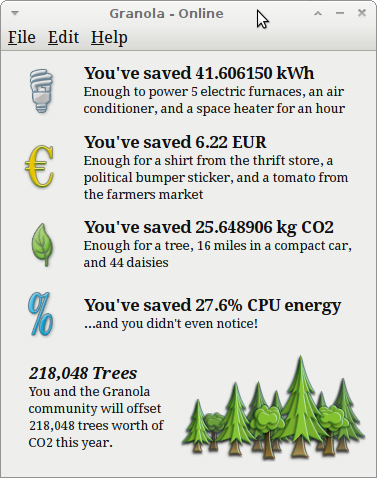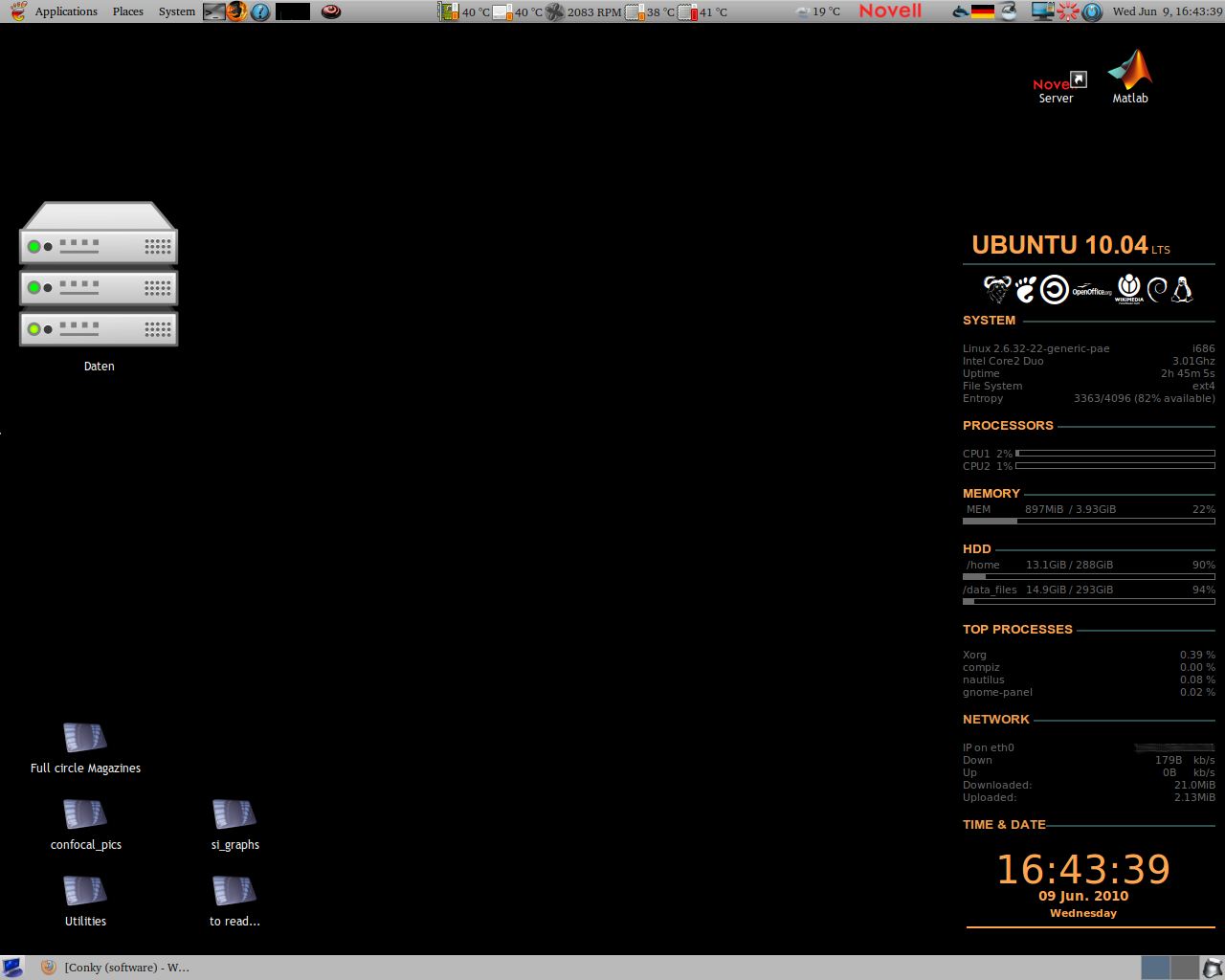Today i present you some programs, not installed by default, that i use in my day by day work and in my free time on my Linux computers.
 Granola is an application that is used to save energy on your desktop or server. Granola saves energy by applying dynamic voltage and frequency scaling (DVFS) to the CPU, so when you browse the net or you use a word processor the CPU frequency is scaled down and you save a bit of energy.
Granola is an application that is used to save energy on your desktop or server. Granola saves energy by applying dynamic voltage and frequency scaling (DVFS) to the CPU, so when you browse the net or you use a word processor the CPU frequency is scaled down and you save a bit of energy.
So a requisite for granola it’s hardware support for Dynamic Voltage and Frequency Scaling (DVFS). DVFS is available on most modern Intel and AMD processors, but may require being enabled in your computer’s BIOS (read this page for information on known models). If DVFS is not available, or turned off, Granola will let you know when it attempts to start up for the first time.
Granola download and usage are free up to five systems per profile. You have to register to the site to track the consumption and especially the savings obtained. From the sixth you must purchase a business license.

